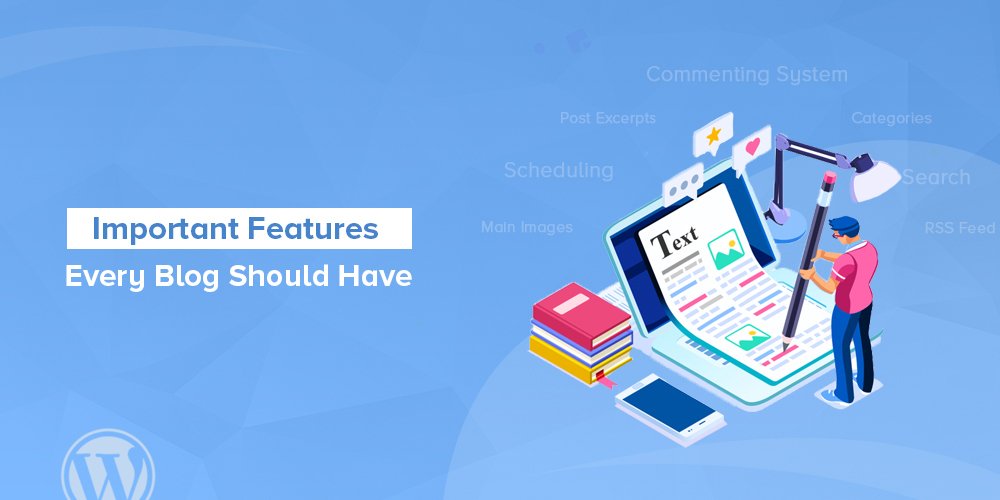Introduction to Blog Websites
In the digital age, blog websites have become an integral part of online communication and content consumption. These platforms provide individuals and businesses with an avenue to share their thoughts, expertise, and experiences with a global audience. A blog website serves as a dynamic platform where users can publish articles, essays, tutorials, and other forms of content on a regular basis.

Key Features of a Successful Blog Website
A successful blog website is characterized by several key features that contribute to its effectiveness and popularity. Firstly, engaging content is paramount. Whether it's informative articles, entertaining stories, or thought-provoking opinion pieces, the content should resonate with the target audience and keep them coming back for more. Additionally, the website should have a user-friendly design that facilitates easy navigation and enhances the overall user experience.

Choosing the Right Blogging Platform
When it comes to creating a blog website, choosing the right platform is key to success. There are several popular blogging platforms available, each with its own set of features and functionalities. WordPress is one of the most widely used platforms, known for its flexibility, scalability, and extensive plugin library. Other options include Blogger, Medium, and Wix, each offering unique advantages depending on the user's needs and preferences.

Setting Up Your Blog Website
Setting up a blog website involves several important steps, starting with selecting a domain name that reflects the brand or niche you're targeting. Once you've chosen a domain name, you'll need to choose a hosting provider to store your website files and make them accessible on the internet. After setting up hosting, you can proceed to design your website using customizable templates and themes.
Creating Compelling Content
Creating compelling content is the cornerstone of a successful blog website. To engage your audience effectively, it's essential to understand their interests, preferences, and pain points. This will allow you to tailor your content strategy accordingly and deliver value-driven content that resonates with your audience. Whether you're writing how-to guides, listicles, or personal anecdotes, focus on providing valuable insights and actionable takeaways.
Promoting Your Blog Website
Promoting your blog website is crucial for attracting visitors and growing your audience. Social media marketing can help increase visibility and drive traffic to your website through platforms like Facebook, Twitter, and Instagram. Email marketing is another effective strategy for nurturing relationships with your audience and driving repeat traffic to your website. Additionally, guest posting on other blogs and websites can help expand your reach and attract new readers.
Monetization Strategies for Blog Websites
There are several ways to monetize a blog website and generate revenue from your content. Display advertising, such as Google AdSense, allows you to display ads on your website and earn money based on clicks or impressions. Affiliate marketing involves promoting products or services and earning a commission for each sale or referral generated through your affiliate links. Sponsored content partnerships with brands and businesses can also provide a steady stream of income, as can selling digital products or services like ebooks, online courses, or consulting services.
Measuring Success and Analytics
Measuring the success of your blog website involves tracking various metrics and analyzing data to understand how well your content is performing and how effectively you're engaging your audience. Tools like Google Analytics can provide valuable insights into website traffic, audience demographics, and user behavior. By monitoring key performance indicators such as page views, bounce rate, and conversion rates, you can identify areas for improvement and optimize your content strategy accordingly.
Common Challenges and How to Overcome Them
Building and maintaining a successful blog website comes with its fair share of challenges. Writer's block, for example, can hinder your creativity and make it difficult to produce new content. To overcome this challenge, try brainstorming ideas, taking breaks, and seeking inspiration from other sources. Lack of traffic is another common challenge faced by bloggers, which can be addressed by implementing SEO strategies, promoting your content through various channels, and engaging with your audience on social media.
Tips for Maintaining a Successful Blog Website
Consistency is key when it comes to maintaining a successful blog website. Whether it's publishing new content on a regular basis, updating your website design, or engaging with your audience, consistency helps build trust and loyalty with your readers. Stay updated with industry trends and best practices to ensure that your content remains relevant and valuable to your audience. Additionally, don't be afraid to experiment with different formats, topics, and strategies to keep your content fresh and engaging.
The Future of Blogging
As technology continues to evolve, so too will the landscape of blogging. Emerging trends such as video blogging (vlogging), interactive content, and artificial intelligence-driven content creation are reshaping the way we consume and create content online. Bloggers who embrace these advancements and adapt to changing consumer preferences will be well-positioned to capitalize on new opportunities for growth and innovation in the years to come.
Conclusion
In conclusion, blog websites play a vital role in the online ecosystem, providing individuals and businesses with a platform to share their ideas, connect with their audience, and build their brand. By following the key principles outlined in this article, you can create and maintain a successful blog website that engages your audience, generates revenue, and contributes to your online presence and reputation.
FAQs
1. How can I make money from my blog website?
There are several monetization strategies you can explore, including display advertising, affiliate marketing, sponsored content, and selling digital products or services.
2. Is it necessary to have coding skills to create a blog website?
No, many blogging platforms offer user-friendly interfaces and customizable templates that allow users to create and customize their websites without any coding knowledge.
3. How often should I update my blog?
It's recommended to update your blog regularly with fresh content to keep your audience engaged and attract new visitors. The frequency of updates may vary depending on your niche and content strategy.
4. Can I use images from the internet in my blog posts?
It's important to use images that you have the rights to or that are available under a suitable license (e.g., Creative Commons). Using copyrighted images without permission could lead to legal issues.
5. Is it possible to change my blogging platform after starting my blog website?
Yes, it's possible to migrate your blog to a different platform if you're not satisfied with your current one. However, the process may require some technical expertise and could potentially affect your website's SEO and traffic.